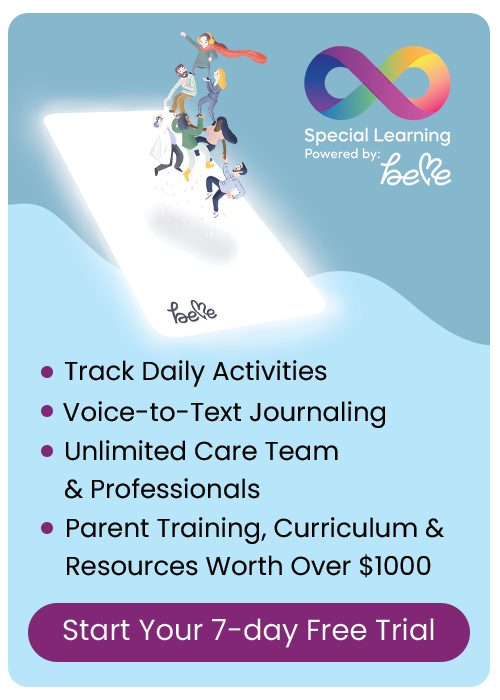Blog Categories
- ADHD
- Applied Behavior Analysis
- Autism Awareness
- Autism Service Providers
- Case Studies
- Dignosis
- Classroom Management
- Credentials
- Ethics
- Family Matters
- FAQs About LIVE Events
- Financial Planning
- Holiday Planning
- IEP's
- Panelists
- Private Equity in Autism & ABA Industry
- Psychopharmacology
- Sensory Processing Disorder
- Speech and Communication
- Subject Matter Experts
- Summer Planning
- Transition Planning
Early Autism Diagnosis Guide
He currently serves as Psychologist at the Step by Step Academy Inc. Dr. Wagner oversees the Psychodiagnostic Assessment Clinic at SBSA, which provides comprehensive psychological evaluations for children with autism-spectrum disorders. Dr. Wagner has assisted children and adolescents with special needs in a variety of contexts such as outpatient mental health centers, juvenile corrections, inpatient psychiatric facilities, public and private schools, and independent practice.”
Early Autism Diagnosis Guide
The decision to have your child evaluated for Autism can seem overwhelming. The decision is laden with confusion and fear. You, or someone close to you, may be thinking that your child will outgrow some of the problems he is experiencing. Others may say to you to, “Let’s give it more time” or “It’s just a phase.” So you wait, and things don’t get better but in fact, get worse. The first place to start then is to acknowledge that perhaps there may indeed by a problem with how your child is developing. Trust your instincts. Listen to your intuition. You know your child better than anyone. Chances are if you didn’t think there was a problem, you wouldn’t be reading this now.
I think that many parents fear that their child will be diagnosed (labeled) with autism. They fear the diagnosis of autism because the very word of ‘autism’ has so many outdated, negative connotations. Autism used to mean a life-long, disabling disease that required institutionalization. Remember Rain Man?
However, it is important for you to know that there are new connotations attached to autism: ‘hope’, ‘success’, ‘happy’ and ‘thriving,’ to name a few. As a psychologist at the Step by Step Academy, a program which specializes in the care of children diagnosed with autism, I have seen firsthand the powerful effects of treatment that lead to hope, success, happiness and thriving. This is especially true if the child’s treatment is started at an early age. So try to not let fear get in the way of getting your child evaluated. I recently spoke to a parent and coworker of a child with autism, and she said it best: “You know, my son came out of that evaluation for autism the same child as when he went in. He was the same child. The only thing different was that it started us on the path to treatment.”
So perhaps you have moved beyond the fear and instead have committed to having your child evaluated. Often, parents don’t know where to turn for help. There is really no manual written about the process of autism evaluation, but the experiences of the many parents who have gone before you can be very helpful.
A good place to start would be to review the Special Learning Autism Checklist which I and others have helped to create. The Special Learning Autism Checklist helps identify if your child is showing signs of autism. Upon completion of the questionnaire, you will be offered a score and narrative report based upon your responses, which will guide you into your next step. The test results may recommend that you take the next step, which is often to schedule an appointment with your child’s doctor. Take the results of the SL Autism Checklist to your child’s doctor. Discuss the results. Many more doctors are becoming knowledgeable about the signs of autism and can provide you with a referral for further assessment. If you do not feel comfortable with the doctor’s response, get a second opinion. Get a third opinion if necessary.
Your child’s doctor may refer your child to a clinic, behaviorist, social worker, child psychologist, or psychiatrist who specializes in the assessment of autism. Notice that I emphasized specializes. It is essential that the professional evaluating your child have expertise in autism. How do you know? Ask. Ask about their training. Ask how long they have been performing evaluations for autism. Ask how they keep ‘up-to-date’ in the field of autism. You will not offend them. But if you do, you don’t want that person evaluating your child. In sum, you want someone with much experience in this area.
What type of professional can evaluate for autism? Many. I may be a bit biased, but child psychologists are often very skilled at conducting evaluations and assessments, so they would be the professional I would often recommend to complete an evaluation. However, there are many other types of professionals who can do a great job. Again, the most important factor is their level of expertise. If you do contact the examiner and they cannot accommodate the evaluation, it is okay to ask: “If this was your child, who would you recommend?” Waitlists can be lengthy for these evaluations. Ask to be put on a ‘standby’ list, if they have one, so that if another family cancels their appointment, you can be called and get in sooner.
Next, check with your insurance company or Medicaid to see if the costs of the evaluation are covered. Such evaluations can be quite expensive, as they are lengthy and detailed. You may have to obtain pre-authorization for the evaluation.
A good evaluation will take at least three to four hours, depending upon the age of the child. You may have to attend one or more appointments to complete all of the testing. Some clinics are able to offer a very comprehensive evaluation which can include assessments by speech therapists, developmental pediatricians, child psychologists, occupational therapists, all at one time. But this is rare.
Gather as much information about your child as possible before the appointment. Create a journal of your child, which could include a time-line of his life so far, a typical day in his life, behaviors which are concerning, the mental health histories of family members, etc. Share this information with your child’s examiner. It is all important.
Tools:
Special Learning Autism Early Screening Checklist
(https://special-learning.com/checklist)
RECOMMENDED PRODUCTS
Adolescent’s Use of Technology to Cope with the Challenges of Autism
A Critical Overview of the Possible Causes of Autism – Autism Educator Teaching Series
Using Technology as a Teaching Tool for Children with Autism and Other Disabilities – ABA Literature Summary






